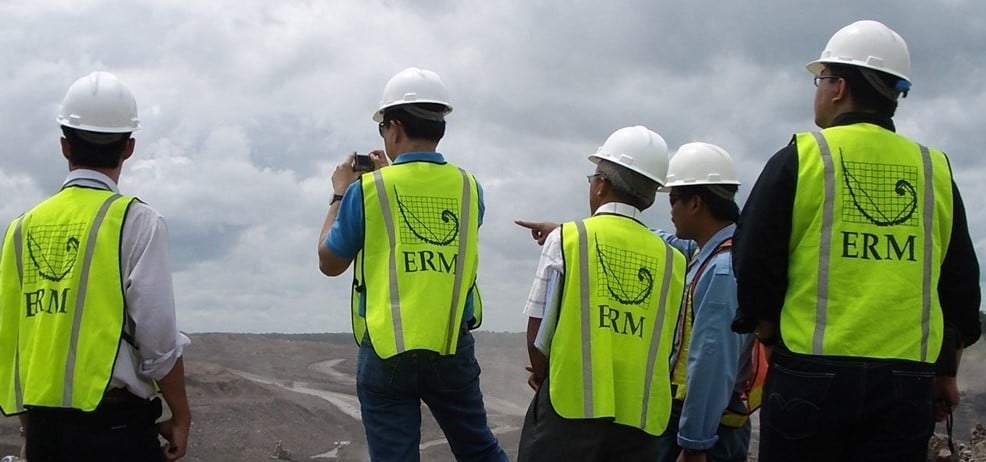While many businesses and companies are now required to disclose climate risks, as well as environmental, social and corporate governance (ESG) reporting, they have great potential in driving sustainable development around the world. As ReThink Hong Kong, a two-day business conference centred around sustainable economy, society and environment, returns for its second edition on October 5-6 at the HKCEC, expert speakers and panelists are sharing their valuable insights, solutions and strategies varying from green finance to reducing packaging waste, to the importance of biodiversity in climate resilience planning.
—
Earth.Org sat down with Robin Kennish, Corporate Sustainability & Climate Change Lead – China, Hong Kong and Taiwan of ERM, a sustainability consulting firm, ahead of his team’s panel at ReThink, on the importance of biodiversity in the business landscape and how companies have key roles to play in sustaining and restoring the environment.
Tell Us About ERM and What Does the Company’s Sustainability Consultancy Entail?
ERM is a sustainability consultancy and are focussed entirely on providing environmental, social, health and safety support to companies. A lot of our work involves sustainability advisory, in particular, on transitioning to a low carbon economy. But mostly, ERM is committed to helping our clients in the different countries to try and meet their net zero goals.
How Does Consultancy Work to Help Achieve Net Zero Goals?
We’re working with a lot of companies to help achieve their own net-zero goals. This includes helping companies sign up and approve science-based targets, and assisting them with their greenhouse gas baseline emissions. In Asia specifically, we have net-zero goals for Hong Kong for 2050 and China for 2060. Companies in these areas will be needing that support now for the transition. Our official purpose is to shape a more sustainable world with the world’s organisations. That’s what we build our business strategy around and what we focus on.
What’s the Best Way to Engage Businesses and Companies in Sustainable Development?
Sustainability has become much higher on a company’s agenda in recent years, including Hong Kong. But the best way to engage is to make full use of the time we have with our clients. Businesses may hire us to do waste management studies, but we try to have a broader conversation with them about what they’re trying to achieve and to bring awareness on other issues that may be coming up or be relevant to them. It’s using that precious time to continue the conversation, so they are informed and can adjust their business strategies accordingly. Keeping that conversation going is one of the most important things as well; not just from bottom up, but also top-down, too. If the companies appreciate it, you’ll get more traction in making changes.
You might also like: Rethinking the Future of Green Building and Sustainable Architecture

How Do You Encourage Companies that are Less Receptive?
One of the biggest challenges is that there’s still a lack of awareness at the board level around ESG and climate issues. They may not consider these issues relevant to them, or they believe their operations are built resilient to climate change and are not really contributing to global warming. But we show these companies what’s going to happen in 20 to 30 years’ time, and how meeting basic regulations might not be enough. What we’ve also seen so far, by adding sustainability to a company’s agenda, businesses realise they actually add more value to the company.
ERM’s Panel at ReThink is on the Business of Biodiversity. Why Should the Importance of Biodiversity Be Considered in the Business Landscape?
Businesses are looking at the financial risks from climate change in their operations. They are already required by the Hong Kong Stock Exchange to disclose these risks so we can understand how resilient a particular business is. The importance of biodiversity is also commonly accepted, including how it is intrinsically linked to climate change. We’ve seen areas where biodiversity has been degraded and the effects of climate change are more severe. Growing number of companies have started to look into the impacts businesses have on biodiversity as part of their resilience planning.
Many conglomerates have business units around the world, and are converting massive areas of land for food supply, production and mining. At some point, the consequences of that land use will start to affect the viability of that business. That’s really where biodiversity comes in: companies that are causing these kinds of large-scale biodiversity impacts now need to think about how they can rehabilitate these habitats, and how do we get biodiversity back where it should be, for the environment and the companies’ resilience and future.
The Taskforce on Nature-Based Financial Disclosures (TNFD) was recently launched in 2020, which will provide a framework for organisations to report and act on evolving nature-related risks. Unlike climate change, which has an agreed price on carbon, there’s no way of valuing biodiversity just yet. But I would expect biodiversity and the impacts on it will likely be on many companies’ agenda in just a few years’ time.
Featured image courtesy of Robin Kennish/ERM.

















